
Jul 06, 2022
In this article we define day zero, how it already came close to it happening in the US, and what we can do to prevent it from happening on a larger scale.

Jun 03, 2022
This article discusses why wastewater is a good career choice, what skills and knowledge an operator needs, and how to find your first job in the water/wastewater field.
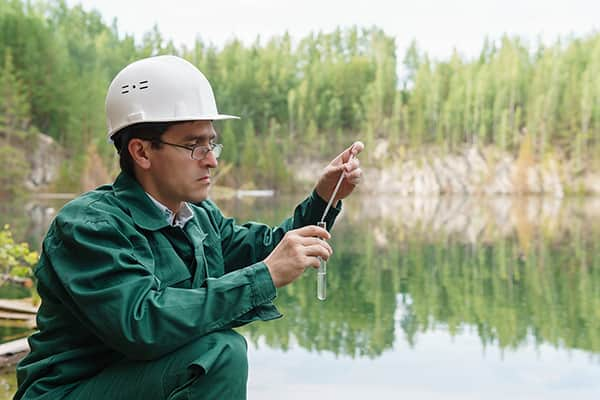
May 06, 2022
This article explains what water quality monitoring is, methods used to monitor water quality, and how the data collected is used to make decisions that affect you and the environment.
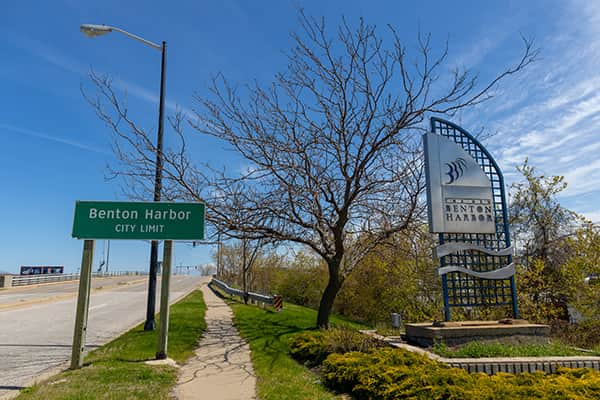
Apr 07, 2022
In this article we compare and contrast Flint and Benton Harbor, while also exploring the problems and potential solutions to fixing lead contaminated water.

Mar 03, 2022
Wastewater from domestic, commercial, and industrial facilities contains significant amounts of thermal energy. This thermal energy can be harnessed and reused through a process called wastewater heat recovery. In this article we’ll explore what wastewater heat recovery is, discuss components of heat recovery, and look at benefits and issues with wastewater heat recovery.

Feb 16, 2022
At JADE Learning, we are fortunate to work with individuals who are experts in their field with decades of knowledge and passion for their industry. One of those experts passed away in early February. We are deeply saddened by the loss of retired water operator, Steven Lambert. Steven Lambert worked in...
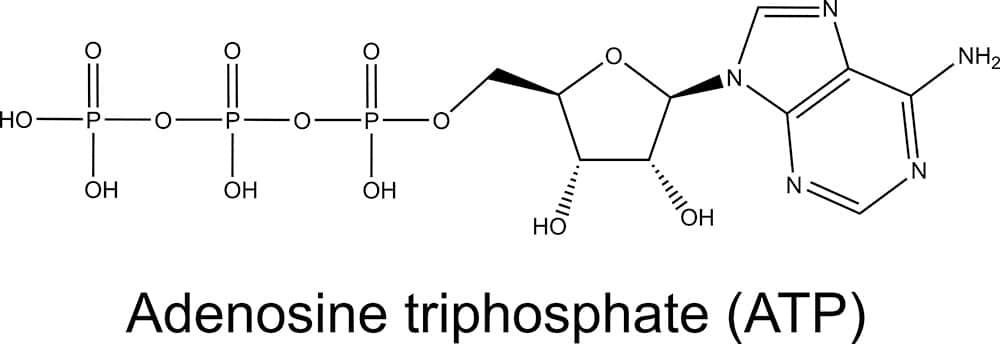
Feb 08, 2022
Did I get your attention with the mention of fireflies? You’ll have to read on for that one. Water treatment is vital for protecting public and environmental health and is best done proactively, as conditions can change rapidly. It is essential that water treatment operators have tools that keep them...
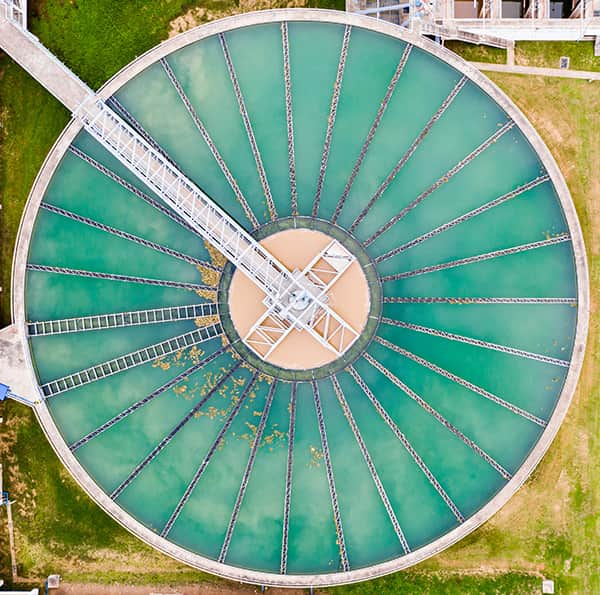
Jan 06, 2022
Surface water treatment is used to prepare water collected from streams and lakes for human and industrial consumption. The chief mission is to protect human health, eliminating harmful organisms and chemicals before the product is distributed. The facilities used have had different names over a couple of centuries and some...
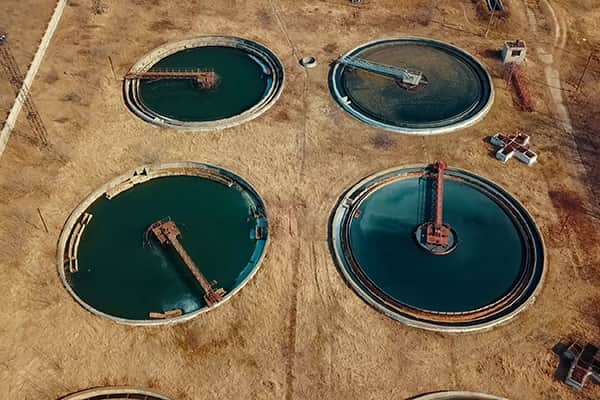
Dec 06, 2021
The principal of using naturally occurring organisms to clean water is not new. Biological wastewater treatment plants utilize microorganisms to reduce and contain pollutants, preventing discharge into the water environment. Exciting research and field analysis has provided data that supports the use of higher life forms to finish the job...
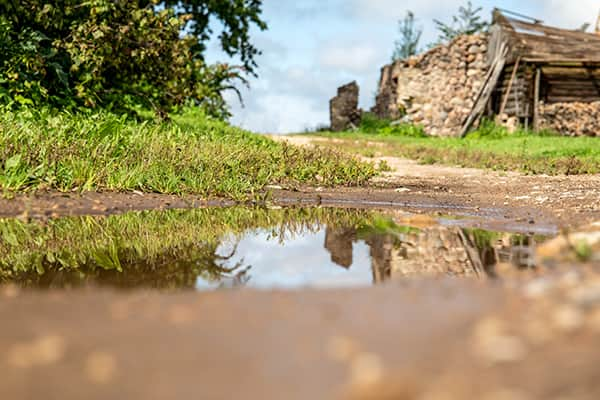
Dec 06, 2021
When you read this title what images come to mind? Is it huge helicopters and fire trucks scooping tons of water from a nearby treatment system or reservoir to battle a blaze? Sadly, the connection between wildfires and water treatment is not a positive one. Wildfires are detrimental to water...

Oct 11, 2021
Per- and polyfluoroalkyl substances (PFAS) refers to a group of synthetic chemicals. There are over 4,700 compounds in this classification, and they are extensively used in the manufacturing of consumer goods due to their non-stick, water-repellant, fire-retardant, and fat-resistance qualities. Many of these substances are used in firefighting and in...

Oct 11, 2021
America’s water and wastewater infrastructure is old. Many of these systems have been in the ground close to 100 years. This infrastructure has provided reliable service for decades, so much so, that maintenance and replacement were rarely considered. Now, with systems beginning to fail, it’s apparent that these systems need...
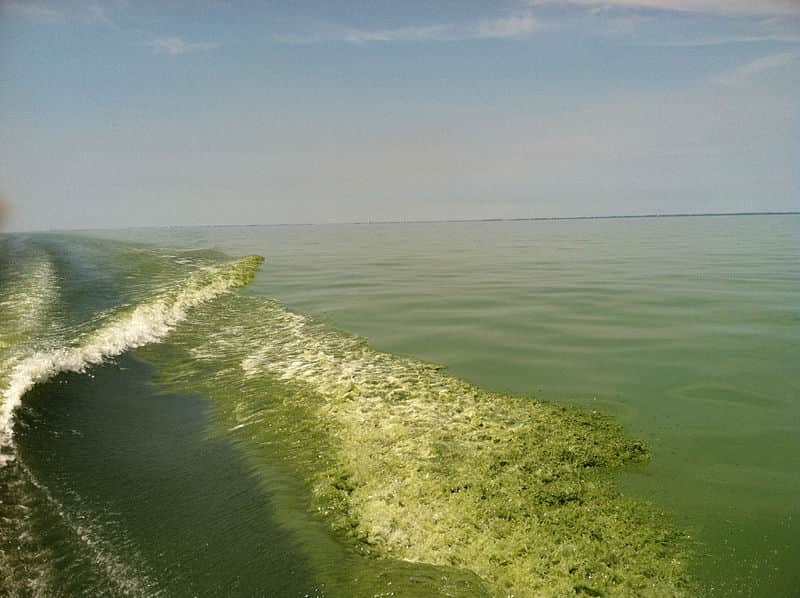
Aug 04, 2021
A harmful algal bloom (HAB), or toxic bloom, is detrimental to public health. In this article we will cover what a toxic bloom is, causes of toxic blooms, and the public health effects of toxic blooms. We will also cover how toxic blooms are currently reported and what can be...
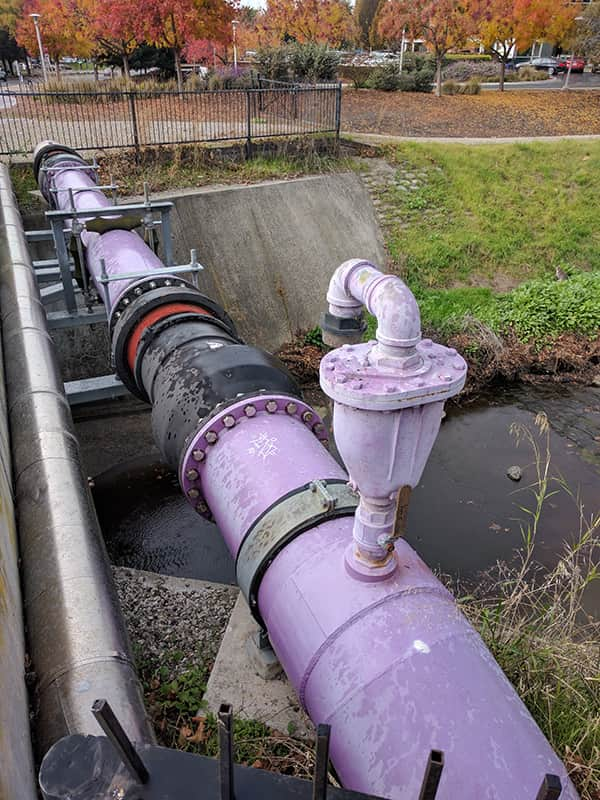
Aug 04, 2021
Water usage is a complex issue that involves cooperation and planning for the future. Water is a shared resource that communities must work together to manage.
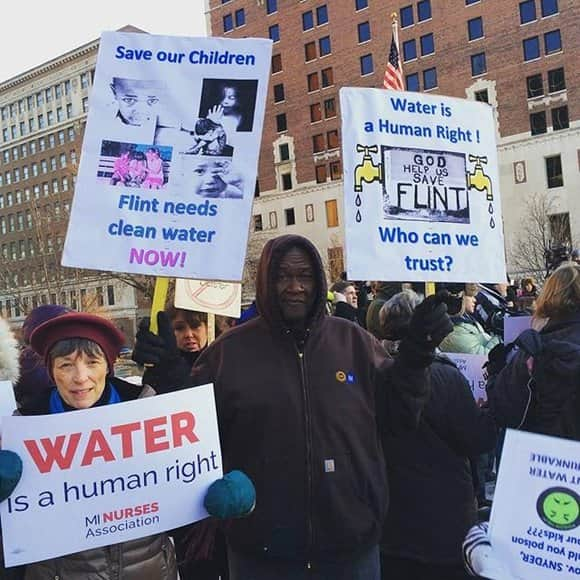
Jun 02, 2021
The Flint water crisis began with an overzealous emphasis on the economy. In 2014, declaring a financial emergency, Flint, Michigan Governor Rick Snyder appointed a state of emergency manager to take control of Flint’s finances. The emergency manager was given authority for all things financial. Those outside the water industry may be ignorant to the ramifications of prioritizing the economy over water quality. However, failure to take the necessary actions to ensure acceptable water quality and safety is indefensible.
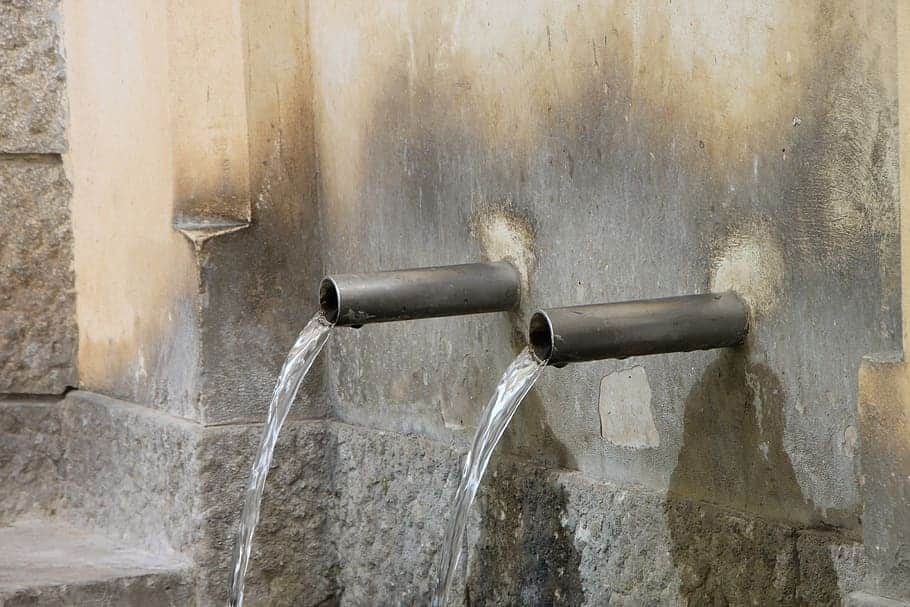
Jun 02, 2021
Have you thought about where your water comes from? What would do without it? You turn the tap and there is fresh, clean, potable water. The only time it may enter your mind is during the inconvenience of a water shortage, with limited lawn watering and car washing, or the occasional boil water advisory. But what happens if the water is gone, or contaminated? You could use a UV water treatment system to disinfect the water coming into your home, but what if the water never reaches the system? As you're reading through this article, pause and think about life without clean water.

Jun 02, 2021
The World Wildlife Fund (WWF) reports some 1.1 billion people worldwide lack access to water, and a total of 2.7 billion people find water-scarce at least one month of the year. Why are we running out of water? There is an abundance of water, however, the problem is having access to a supply of potable water, or water that is fit for consumption. Even in countries with adequate water resources, water scarcity is still not uncommon. Water shortages can be caused by collapsed infrastructure, failed distribution systems, pollution, poor management, or other economical factors.

Jun 02, 2021
There is no safe level of lead in drinking water, but a zero goal, though laudable, is at present an unattainable goal. The policing of lead in drinking water is generally in the hands of the local utility company until testing reveals lead levels higher than 15 ppb (parts per billion) in 10% of the samples collected in the distribution system. This means the action level for remedial action is 15 ppb. The frequency and number of samples collected is determined by the service population of the utility, history of analysis results, and the success of remedial measures, if they prove to be required. Remedial measures may be avoided by implementing some measures as ongoing treatment regimens, whether there is a problem or not. The chief remedial or preventive actions involve implementing and maintaining a corrosion control program to prevent leaching of regulated metals, such as lead and copper, into the product.
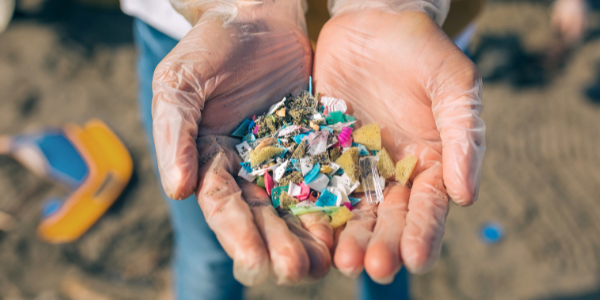
May 05, 2021
Our lives have become entwined with the use of plastic products. We are dependent on plastic for clothing, housewares, containers, automobiles, televisions, telephones, cosmetics, and much more. The amount of plastic produced is roughly 300 million metric tons per year. Eventually, these plastic products form large debris fields and are the most prevalent marine debris found in our oceans and great lakes.

Mar 30, 2021
In February 2021, a large winter storm impacted Texas and surrounding states. These areas suffered greatly from the loss of essentials that included food, utilities, and drinking water. Involved states suffered losses in the billions of dollars along with at least 57 storm-related deaths just in Texas. Loss of electricity was central to most suffering and loss of other dependent utilities. In the extreme cold, loss of heat sources for homes and businesses either provided directly by electricity or natural gas left people in danger of succumbing to the cold. Some families died from using their vehicles to warm themselves in closed garages or using their gas stoves to warm their houses.

Feb 01, 2021
There is a looming crisis in the water industry, mainly in plant operating personnel, as the present pool of personnel age out and leave the industry for retirement. Many in the industry are calling it the “Silver Tsunami” as a wave of older personnel leave the industry, taking their knowledge, skills, and certifications with them. It is estimated that over the next ten years between 30% and 50% of these positions will be left vacant. The next ten years will reveal a deficit of operators if something cannot be done to counter the problem. Health and safety issues will arise as the situation continues, due to understaffed facilities with less experienced personnel. The experience and skills gap will get critical sooner rather than later, prompting the need for proactive approaches to the problem now.

Jan 07, 2021
On a national scale, there are four grades of wastewater treatment plant (WWTP) operator certification; all four grades have different education and experience requirements. These requirements also vary by state. We’ve outlined the general requirements at each grade below. WWTP Experience and Educational Requirements Grade 1 To obtain a Grade...

Dec 03, 2020
Many of the terms used in wastewater overwhelm the novice operator, and at times, it is the fault of the trainer. Instructors often assume that we are explaining the terms when we fail to realize that our nomenclature is not the native language of the trainee. Simple but relentless explanation of these terms and how they relate to water treatment is necessary.

Dec 01, 2020
Nevada Drinking Water Operators are required to complete continuing education every two years in order to renew their license. And JADE Learning's online courses can help you obtain the continuing education credit hours needed for renewal.

Nov 23, 2020
All public water systems in Hawaii — with the exception of transient, non-community systems — must be managed by a licensed operator. And Drinking Water Operators in Hawaii can renew their licenses with the help of JADE Learning.
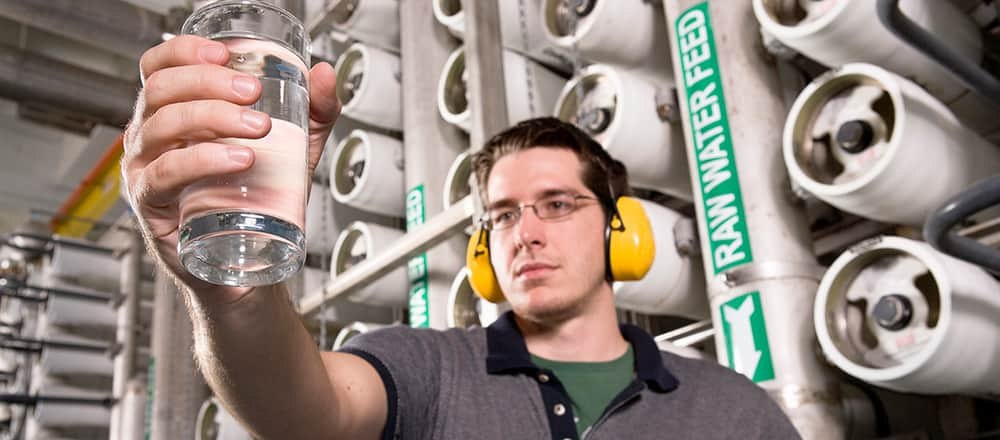
Nov 23, 2020
The health of Oregon’s general public and environment rests largely on the quality of the state’s drinking water. That’s why it’s important for Drinking Water Operators in Oregon to complete continuing education and renew their licenses on a regular basis. JADE Learning makes it easy to renew an Oregon drinking water license with a catalog of online courses that allow you to complete your continuing education requirements from the comfort of your own home.

Nov 03, 2020
Operator certification levels are governed by general statutes in each state. These general statutes specify what is required to be eligible for a specific certification. Most certifications follow a similar path, so we will illustrate one example in this article. Biological Water Pollution Control System Operator Certification. There are 4 levels of operator certification, from Grade I through IV. Grade I is the entry level certification that does not require wastewater experience. Grade IV requires years of experience and education to obtain. These grades are based in conjunction with plant level ratings. Plants are rated based on design flow and type of processes involved.

Oct 05, 2020
Technological advancements in water plant operations have increased efficiency and decreased labor- intensive activities. Supervisory control and data acquisition (SCADA) and other automated control systems have allowed plants to operate at levels and limits that were once thought impossible. However, with an increase in technology and interconnectivity grows a new threat: cyberattacks.

Sep 22, 2020
The renewal deadline for Nevada Wastewater Operator licenses is the anniversary of the license issuance every 2 years. This deadline is applicable to Grade I, Grade II, Grade III, Grade IV and Grade V license types.

Sep 22, 2020
The renewal deadline for Alabama Wastewater Operator licenses is December 31st of every year. This deadline is applicable to Advanced Level I Installer, Advanced Level II Installer License, Pumper License, Portable Restroom Operator License and Manufacturer License.

Sep 09, 2020
Did you know that sip of water you took from the faucet today was most likely regulated by the Environmental Protection Agency (EPA)? Public drinking water systems regulated by the EPA provide water to 90 percent of Americans. Almost all public drinking water and wastewater discharges are regulated by the EPA. The EPA sets strict regulations on these discharges to ensure the safety of not only the environment but also the public health.

Sep 03, 2020
JADE Learning is approved by the Department of Environment and Energy to provide online continuing education courses for license renewal. Our courses are developed by electrical and water operator experts with decades of experience. All course material is online and compatible with smartphones, computers and tablets. Nebraska Wastewater Operators can start a course for free and pay when they're ready to receive a certificate and report hours to the Department of Environment and Energy.

Sep 03, 2020
The renewal deadline for Alabama Wastewater Operator licenses is December 31st of every year. This deadline is applicable to Advanced Level I Installer, Advanced Level II Installer License, Pumper License, Portable Restroom Operator License and Manufacturer License.

Aug 16, 2020
NC Water Operator licenses expire on December 31st. Here are the steps you need to complete in order to renew your license.

Jun 30, 2020
In recent history emphasis has evolved from secondary treatment with the goal on nitrification, which reduces the Ammonia Nitrogen (NH3), to goals to reduce Total Nitrogen and Total Phosphorus discharges to sensitive waters. Conventional secondary treatment is not adequate to reduce Total Nitrogen and Phosphorus to acceptable levels for sensitive receiving waters. The ultimate goal is to control the growth of algae and aquatic plants that rob oxygen from the water.
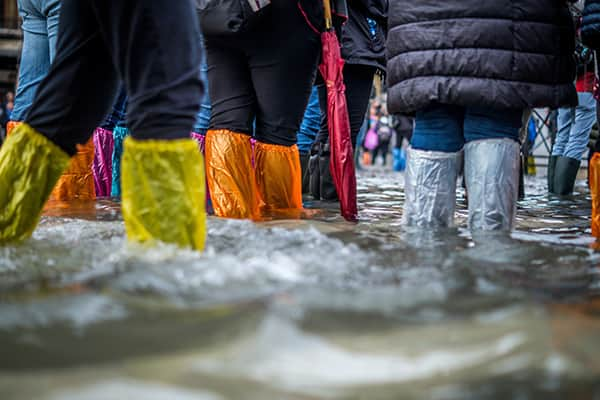
Jun 03, 2020
Is your plant ready for a major event? Do you have a plan against terrorist attacks, natural disasters, or catastrophic events such as a pandemic? Would your plant still be able to operate and provide clean water? Emergency preparedness is a proactive measure that is vital to the continued successful operation of water plants. Emergency preparedness includes having plans and procedures in place to respond to an emergency situation. We will talk about general and incident-specific emergency plans and what information they should include. We will also discuss one of the most important aspects of any emergency response preparedness plan: communication. We will cover both internal and external means of communication and how to incorporate them into your emergency response plan.
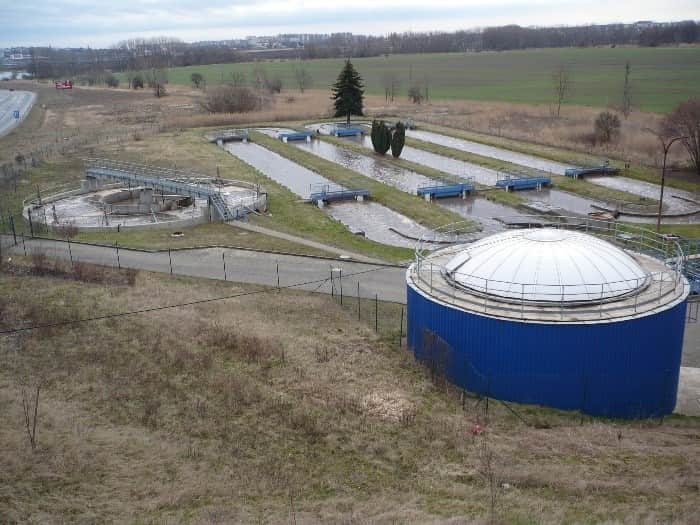
Mar 04, 2020
Drinking water, wastewater, remediation, landfill, land application operations, and other operations are intertwined with little formal association with one another. There are occasions that these operations will meet to discuss issues, but mostly, if everyone does their job professionally, the all will continue without issue. Professionals in this industry are one another’s keeper in the effort to protect public health and the environment.

Oct 16, 2019
When Does My Arizona Water Operator License Expire? Your Arizona Water Operator License will expire every 3 years. The specific expiration date depends on the date your license was originally issued. If you are unsure about your license expiration date you can look it up here. How Many Professional Development Hours Do...